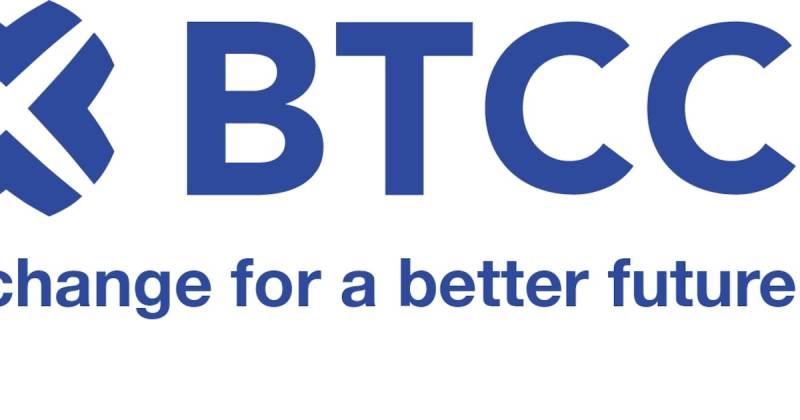 |
|
 |
|
 |
|
 |
|
 |
|
 |
|
 |
|
 |
|
 |
|
 |
|
 |
|
 |
|
 |
|
 |
|
 |
|
Cryptocurrency News Articles
Cardano Founder Charles Hoskinson Reveals New Details About Upcoming Leios Scalability Upgrade, Positioning It as a Game-Changing Protocol Enhancement
Mar 31, 2025 at 01:30 pm
In an interview on The Wolf of All Streets podcast, Cardano founder Charles Hoskinson revealed new details about Cardano's next major scalability upgrade, Leios, positioning it as a game-changing protocol enhancement designed to deliver "Solana-style speed"

In a recent interview on The Wolf of All Streets podcast, Cardano founder Charles Hoskinson discussed Leios, the blockchain’s next major scalability upgrade, which is designed to bring “Solana-style speed” without sacrificing decentralization or resilience.
Leios is part of Cardano’s multi-pronged scaling strategy to increase the base layer’s throughput. It builds upon the foundational principles of Extended UTXO (EUTXO), Cardano’s data model, which enhances Bitcoin’s original UTXO model with smart contract capabilities.
Leios is closely integrated with input endorsers, a parallel pipeline that separates transaction propagation from block validation, allowing the network to process multiple transactions in parallel. It is essentially the execution layer upgrade that will enable fast transaction processing without compromising on finality or decentralization.
“Leios is going to give us Solana-style speed but with full decentralization and no stalls,” Hoskinson stated, highlighting the key differentiator.
Solana has been praised for its high throughput and low transaction costs but has also experienced 13 major outages since its mainnet beta launched in 2020. Its validators also require significant hardware specifications and technical expertise, which some critics say compromises decentralization and resilience.
Solana is also facing increasing centralization as a small number of operators are running a large portion of the network's total stake. According to recent data from DeFiLlama, about 60% of Solana’s total locked value is held by just five protocols.
Hoskinson used this contrast to highlight Cardano’s resilience and decentralized strength.
“Solana has had 13 major stalls and they’re still going. Cardano has been running for nearly seven years, 24/7, without a single minute of downtime. That’s not an accident—that’s because we took the time to build it properly from the ground up,” he added.
Leios will be a key technology in Cardano’s modular scaling strategy, which also includes Hydra, Cardano’s Layer 2 state-channel system, and Midgard, an optimistic rollup platform. Together, these technologies are designed to meet future user and institutional demand.
According to the Edward Decentralization Index, Cardano is the most decentralized Layer 1 blockchain today. It also boasts over 1,000 DReps (delegated representatives) for its on-chain governance—twice the number of members in the U.S. Congress, according to Hoskinson—and a community-ratified on-chain constitution, which was passed with an 85% approval rating. The network also maintains a massive $1.5 billion treasury, which is controlled by the community and is used to fund ecosystem development, protocol upgrades, and strategic investment.
“We’re close to finishing the roadmap we set out 10 years ago. The tools are coming online, and the Treasury ensures we can keep moving strategically—without having to bend to VC pressure or corporate shareholders.”
Bitcoin DeFi
In the same interview, Hoskinson touched upon Cardano’s role in the emerging Bitcoin DeFi ecosystem, explaining how it will serve as the computational layer operating under Bitcoin’s security guarantees. Thanks to Babel fees, users can pay transaction costs in BTC while running smart contracts on Cardano.
“We’re best-in-class for many different approaches. We predicted UTXO DeFi and suddenly Bitcoin DeFi is becoming a thing. We’re the first system to build that infrastructure. We’re going to be a great layer for Bitcoin DeFi,” Hoskinson stated.
Cardano’s architecture opens the door for the blockchain to become a central liquidity and execution hub for Bitcoin, Litecoin, Dogecoin, and other UTXO-based assets—an ecosystem that collectively has more market cap and liquidity than Ethereum and Solana combined.
“Cardano has a great chance to be the nexus of the entire UTXO DeFi ecosystem. And once Bitcoin DeFi turns on—and it will—ETFs, institutions, and hundreds of millions of users will follow.”
Hoskinson’s remarks also addressed criticisms that Cardano lacks the "hype cycles" of other chains or hasn't yet produced flashy DeFi TVL numbers.
“Year by year, our DApp count is growing. TVL is doubling annually. Transaction volume is up. And we’ve had zero major security incidents. But because we’re not chasing memes or pumping VC tokens, people say we’re irrelevant. That’s frustrating.”
He argued that speculative trends—like meme coins or yield farming manias—may bring temporary attention, but rarely deliver lasting value. Cardano, by contrast, is building systems to support real-world assets, regulated finance, and public infrastructure use cases.
Disclaimer:info@kdj.com
The information provided is not trading advice. kdj.com does not assume any responsibility for any investments made based on the information provided in this article. Cryptocurrencies are highly volatile and it is highly recommended that you invest with caution after thorough research!
If you believe that the content used on this website infringes your copyright, please contact us immediately (info@kdj.com) and we will delete it promptly.
-

- "Cardano (ADA) Price Could Dip Below $0.60, Following Previous Market Cycle"
- Apr 09, 2025 at 05:10 am
- "Cowen goes on to say that ADA's technical indicators, such as its 20-week simple moving average (SMA) and 21-week exponential moving average (EMA), are lining up with the theory that the crypto asset could see another sizeable dip."
-

- BONK, the well-known meme coin, has risen over 35% in the last week, attracting meme coin investors in the market. So, what caused this rally?
- Apr 09, 2025 at 05:10 am
- The well-known meme coin, BONK, has risen over 35% in the last week, attracting meme coin investors in the market. So, what caused this rally?
-

-

-

-

-

-

-


























































